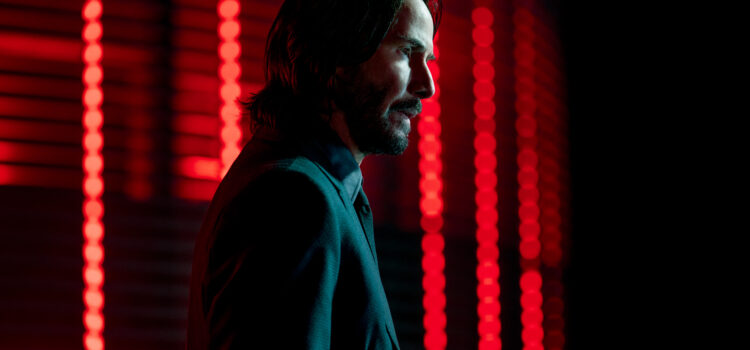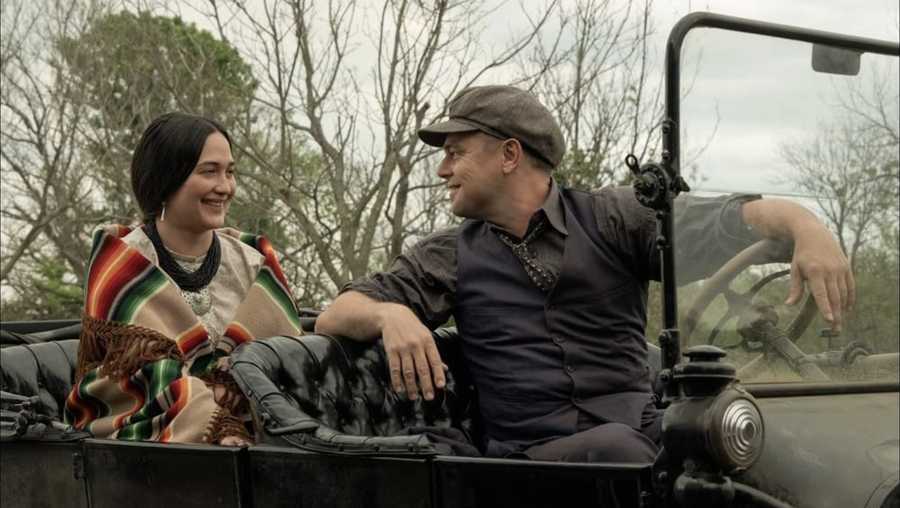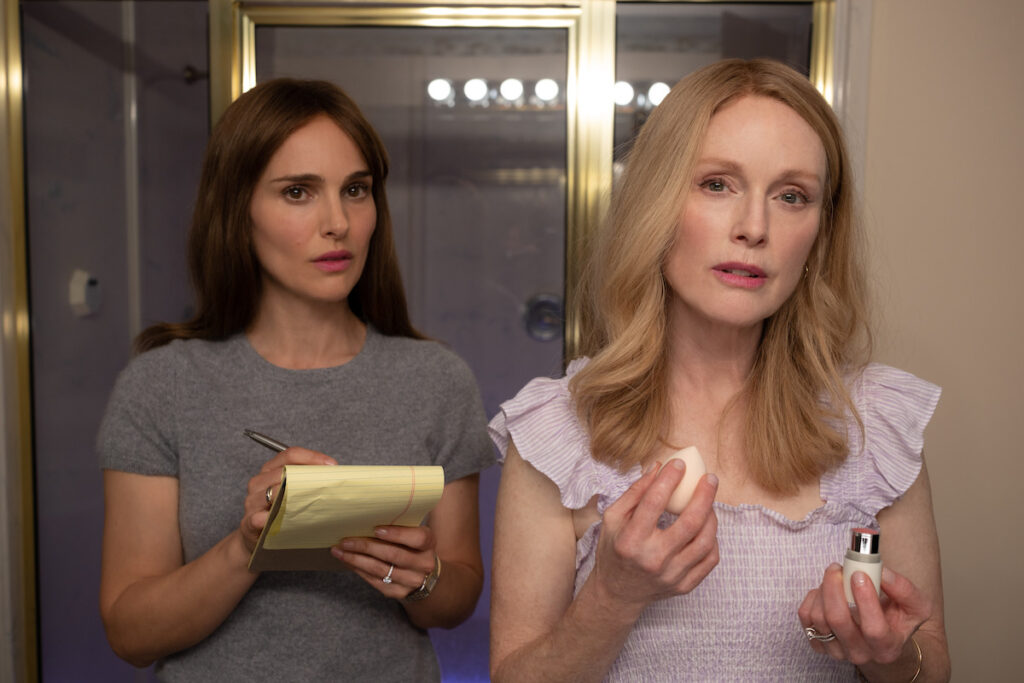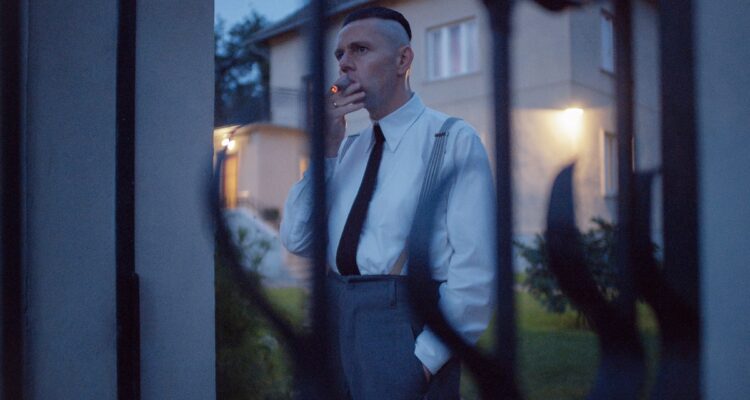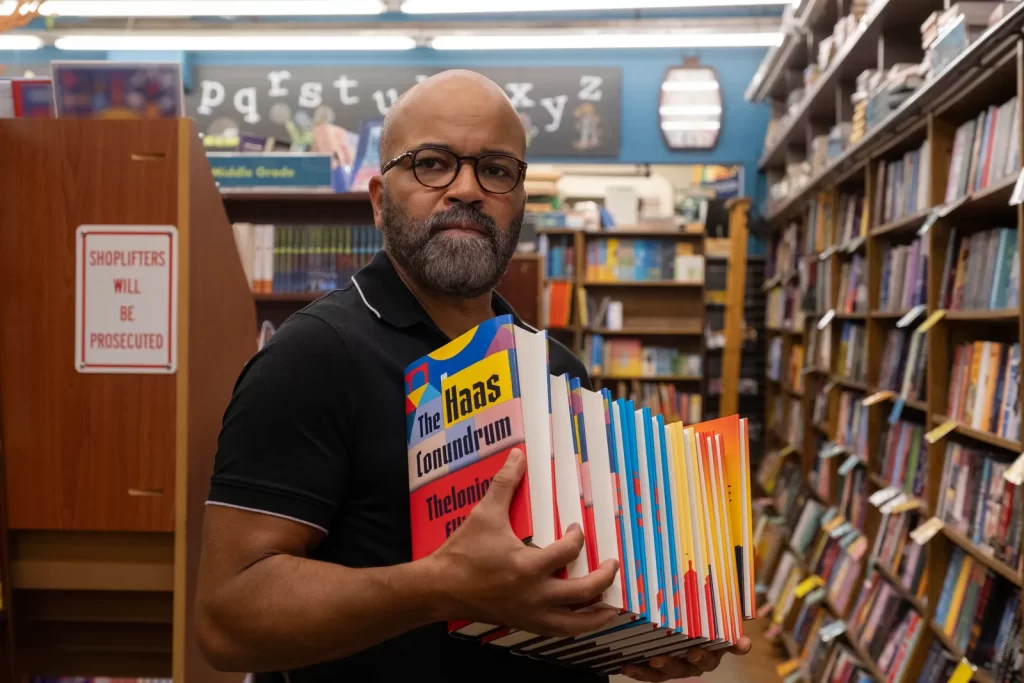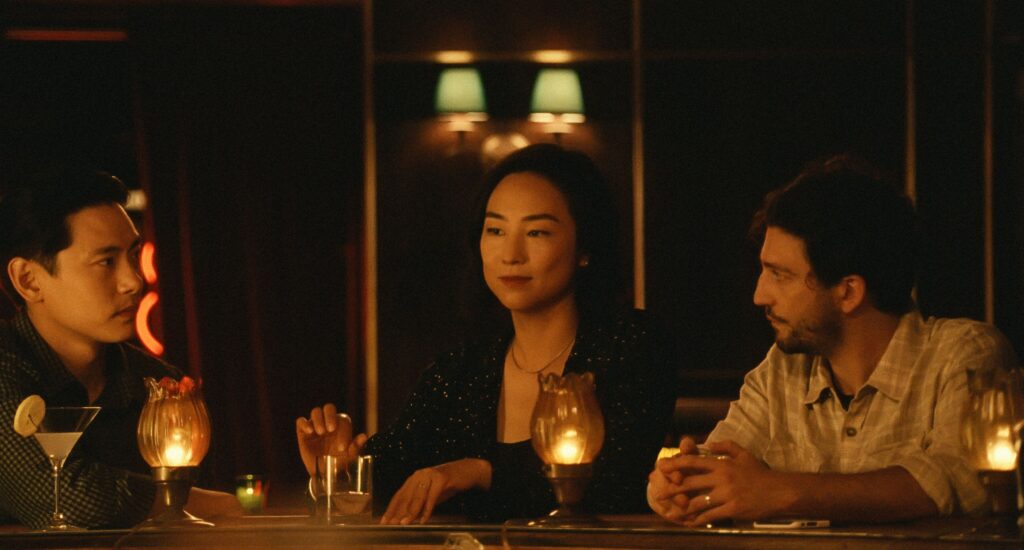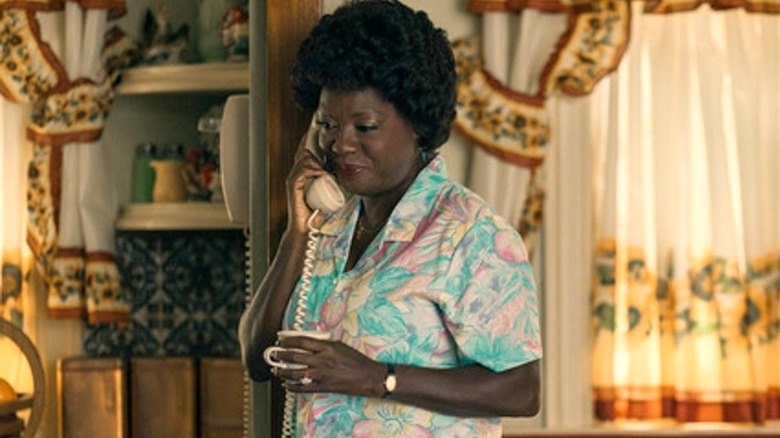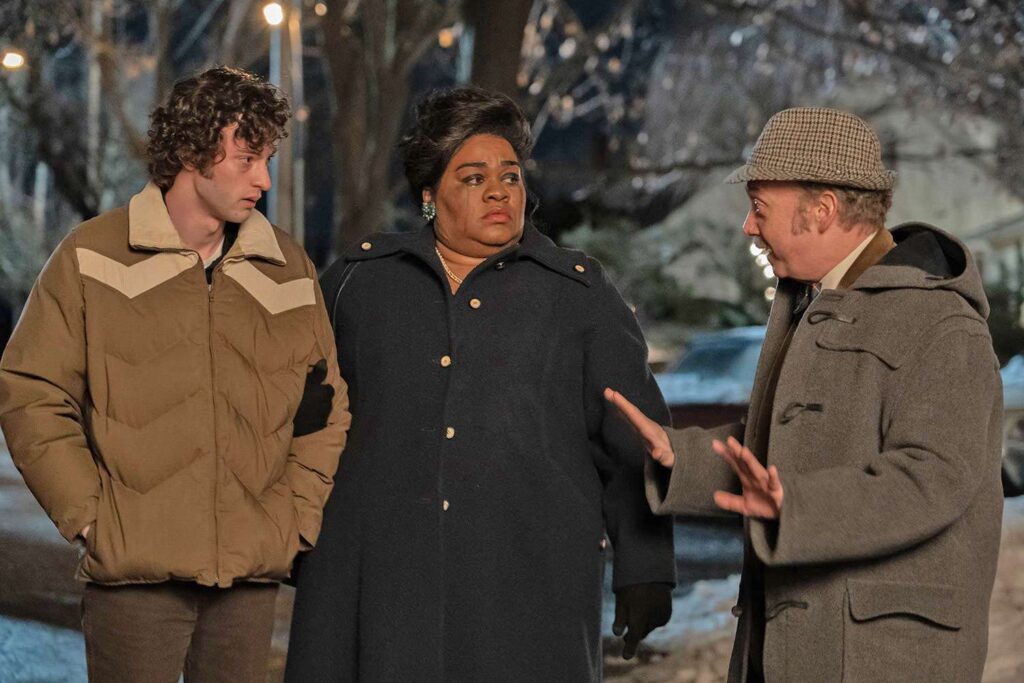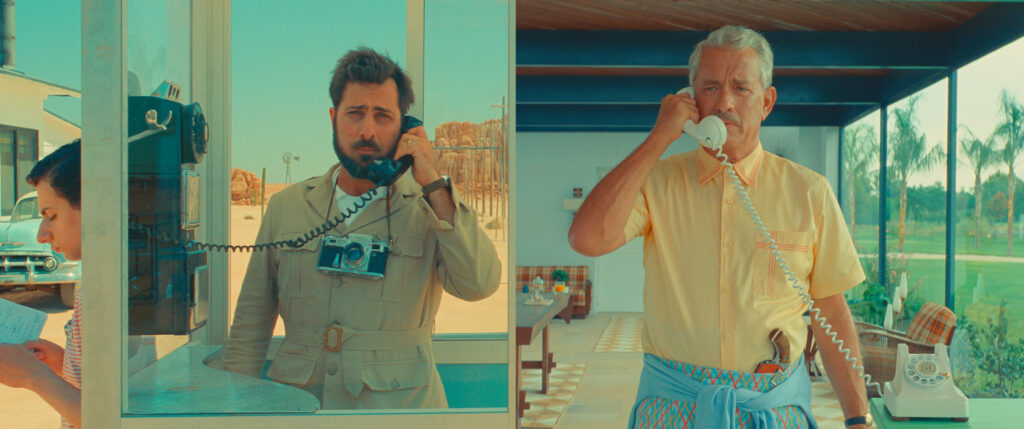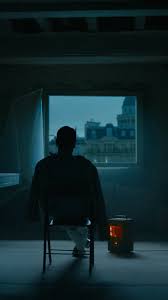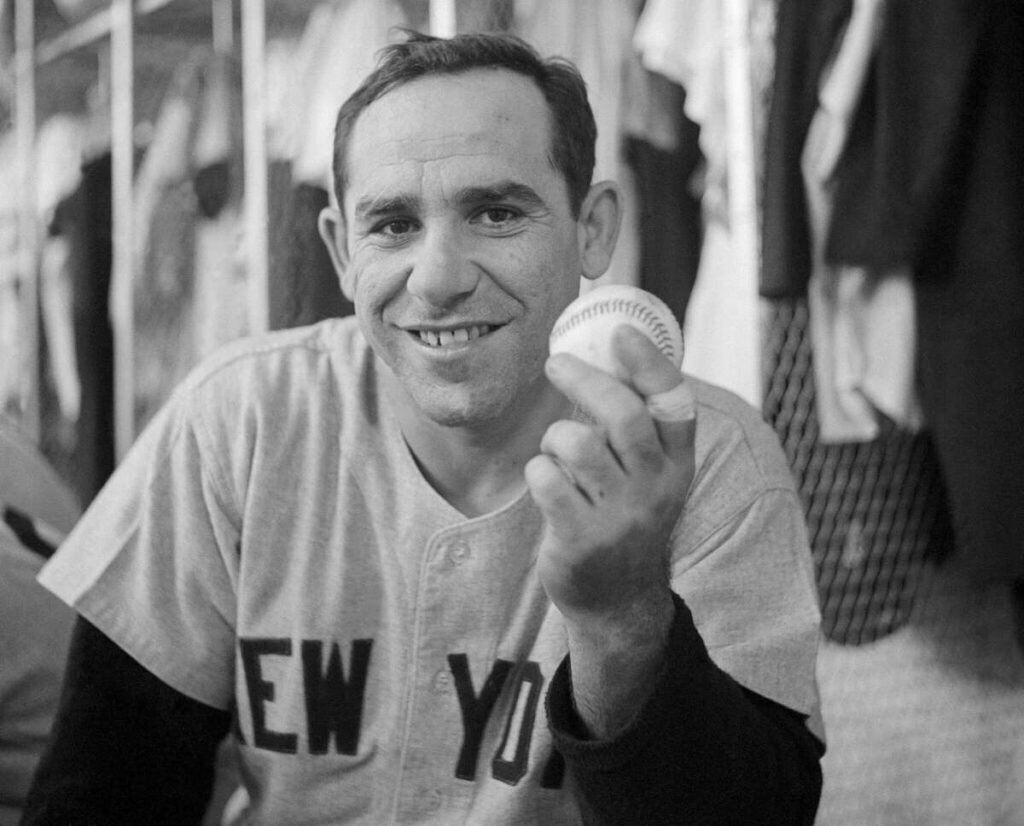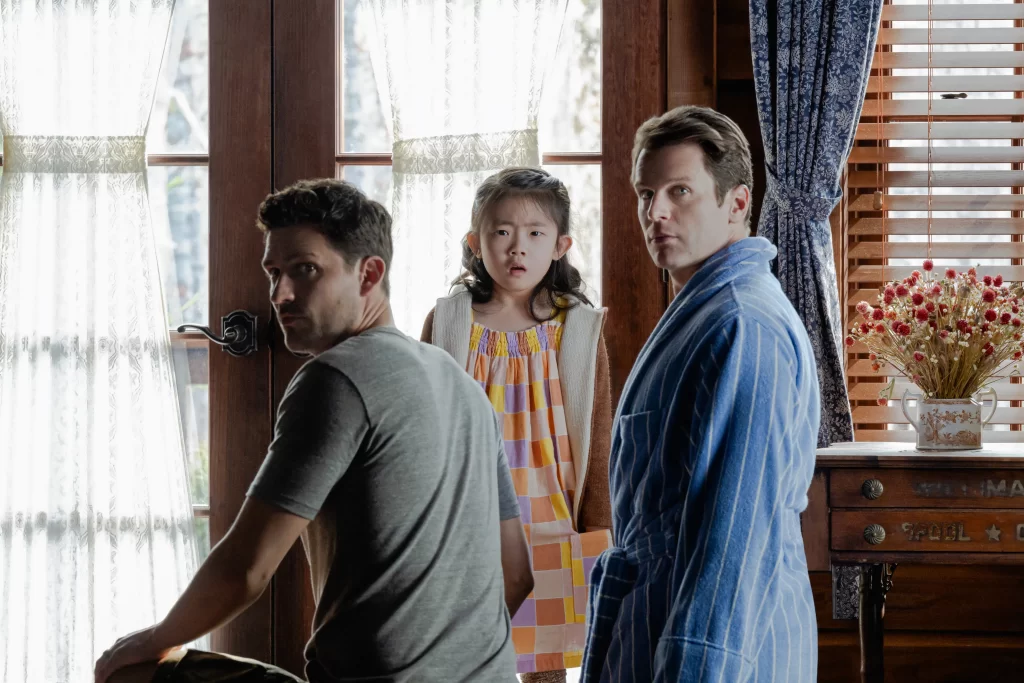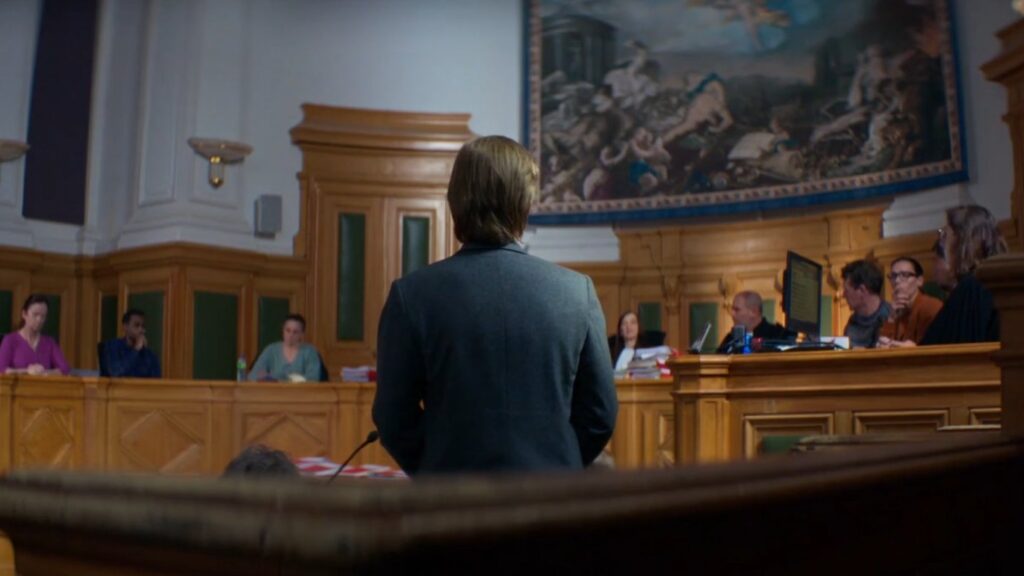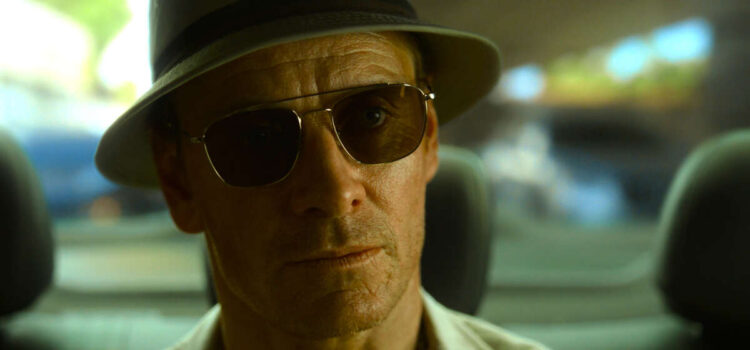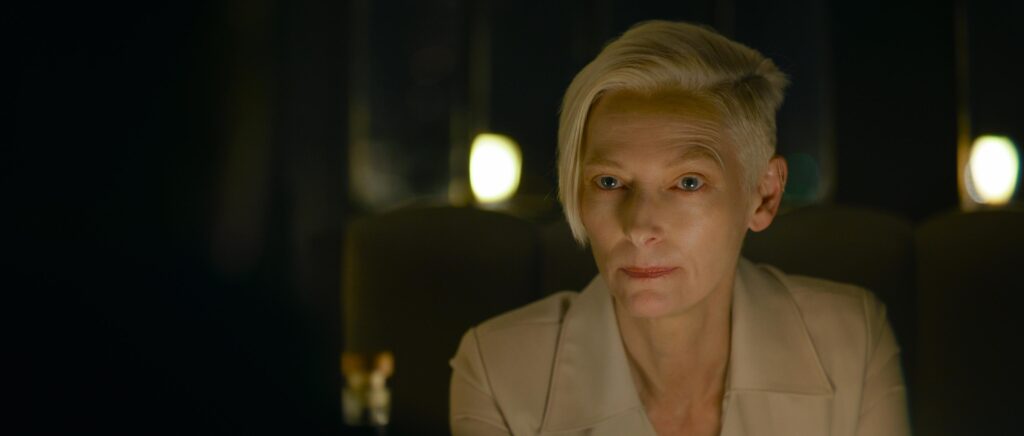By Alex McPherson
Here’s a list of my favorite movies of 2023, posted fashionably late.
10. “Barbie”
Let’s be honest here. If you’re reading this, you’ve probably already seen Greta Gerwig’s “Barbie.” This box office sensation (superior to Christopher Nolan’s “Oppenheimer,” by the way) is a sight to behold — packed to the brim with eye-popping visuals and amusing-to-hilarious jokes, featuring excellent performances from Margot Robbie, Ryan Gosling, and America Ferrera (among others in this star-studded cast) in a story whose emotional storyline leaves a lasting impression. Gerwig’s film tackles a ton of topics, delivering an incisive takedown of the patriarchy, a universal ode to self-actualization and empowerment, while also being a self-reflexive critique and celebration of the Barbie brand itself. Skeptical viewers should absolutely give this film a watch – “Barbie” is one of the most confident, well-crafted films of this year, or any year.

9. “Are You There God? It’s Me, Margaret.”
I held off watching director Kelly Fremon Craig’s “Are You There God? It’s Me, Margaret.” until just recently, but it’s absolutely essential viewing. Elevated by sensitive, lived-in performances from Abby Ryder Fortson, Rachel McAdams, Benny Safdie, and Kathy Bates, Craig’s adaptation of Judy Blume’s 1970 novel is a relatable coming-of-age dramedy that takes an empathetic approach to all its characters. Growing up is complicated, messy, and full of unknowns, regardless of age, but the film emphasizes the importance of staying true to yourself and being your own person. Funny, heartbreaking, and ultimately uplifting, it’s a timeless story that’s been given a fresh coat of paint, in one of 2023’s most enjoyable films.
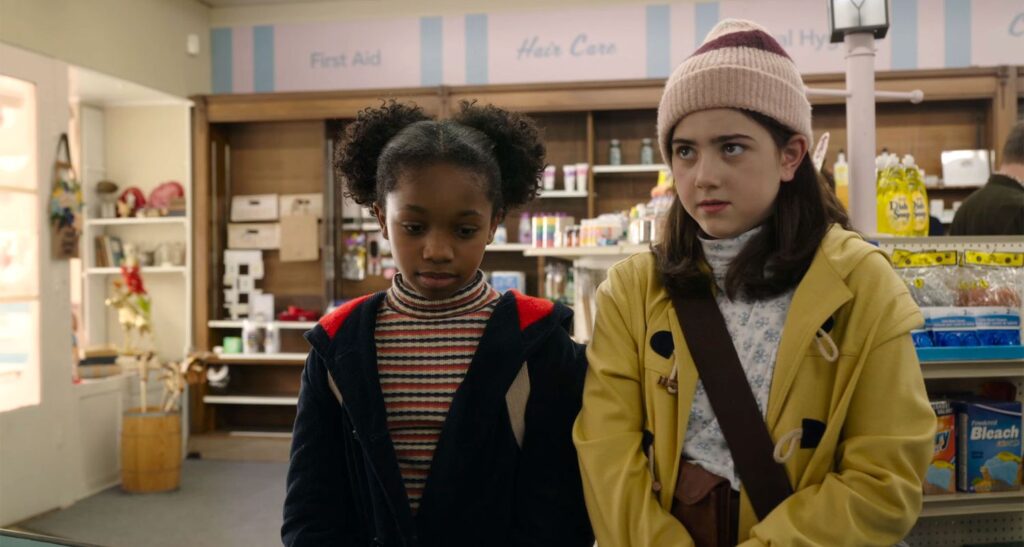
8. “Skinamarink”
A claustrophobic, intensely immersive experience from start to finish, and one of the year’s most polarizing films, director Kyle Edward Ball’s “Skinamarink” is a feat of experiential storytelling. The film centers around two children trapped in their family home as doors and windows mysteriously disappear. Their parents are nowhere to be found, with only Legos and public domain cartoons on a blindingly-bright analog TV to comfort them. As the situation grows increasingly trippy and terror-inducing, Ball eschews a clear-cut narrative for subjective manifestations of viewers’ own monsters lurking in the darkened spaces of empty hallways and ceilings. We rarely leave the kids’ point-of-view due to agonizingly suspenseful, static-laden editing and cinematography that dares us to fill in the voids with our own fears, maintaining a constant sense of anticipation as we wait for silence to be broken. “Skinamarink” is a demanding watch, for sure, and not for those with short attention spans, but there’s truly nothing like it.
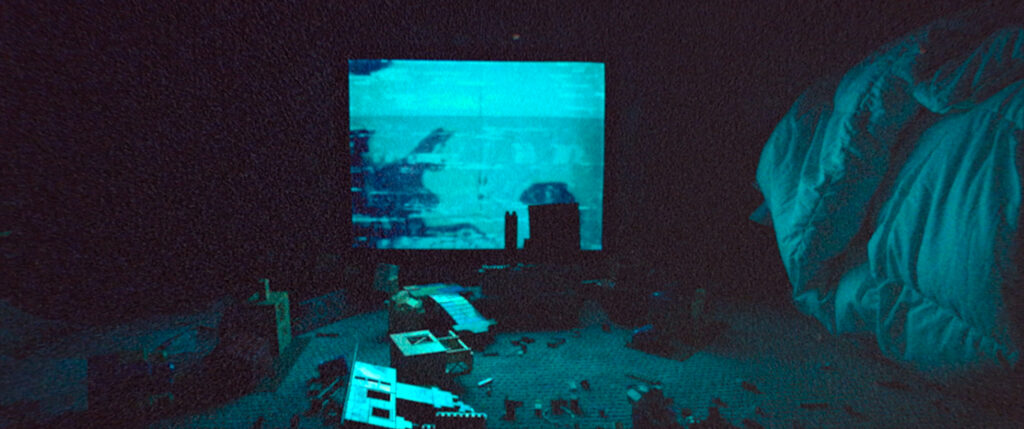
7. “Menus-Plaisirs – Les Troisgros”
The only documentary in my Top 10 list this year, director Frederick Wiseman’s “Menus-Plaisirs – Les Troisgros” is an ode to cooking, to art, and the act of creation. It’s also four hours long, and I recommend watching it in two two-hour sessions when it becomes available. Wiseman’s film transports viewers into several restaurants in the idyllic French countryside run by the Troisgros family, letting viewers observe the meticulous brainstorming and preparation that goes into running such high-end establishments. Wiseman positions us as flies on the wall, sans narration or music, and creates a downright hypnotic spell. It’s fascinating and inspiring to watch artists at work, and seeing the passion that main chef Michel and his sons César and Léo have for the work. Viewers travel from the kitchen to various producers (including local winemakers, cheesemakers, and cattle farmers) as experts explain their crafts, as well as spending time with (occasionally pompous) restaurant patrons for whom the food is prepared. Through its patient rhythms and tactile cinematography, “Menus-Plaisirs” is captivating and inspiring, motivating me to embrace my own interests.

6. “Godzilla Minus One”
Emotional, invigorating, and full of rip-roaring set pieces while still having plenty on its mind, director Takashi Yamazaki’s “Godzilla Minus One” is one of the year’s biggest surprises. Kaiju movies aren’t necessarily known for the humans involved, but Yamazaki’s film takes time to present endearing, three-dimensional characters facing off against an unprecedented threat. Themes of PTSD, survivor’s guilt, and joining forces for a nation’s existence take center stage alongside sequences of incredible visual artistry and suspense. Ryunosuke Kamiki’s damaged pilot-turned-minesweeper Koichi Shikishima remains a compelling protagonist for this crowd-pleasing piece of popcorn entertainment that honors its rich legacy and doesn’t overplay its hand, balancing its weighty themes with some of the year’s most spectacular action.
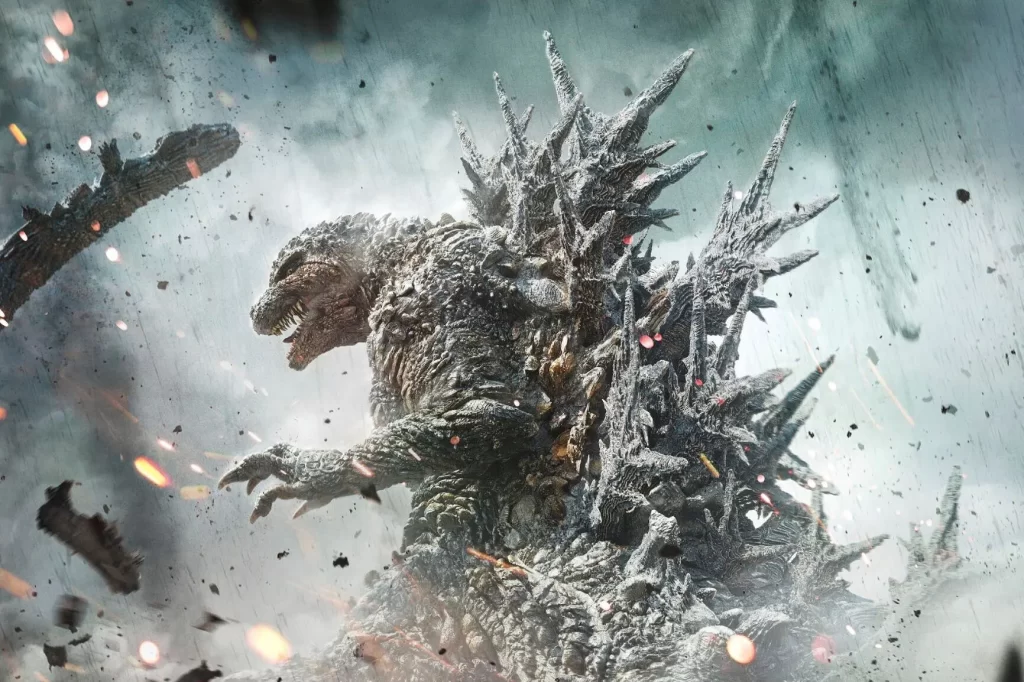
5. “Past Lives”
Emotionally raw and artfully constructed with an astounding trio of central performances by Greta Lee, Teo Yoo, and John Magaro, director Celine Song’s “Past Lives” is a thought-provoking meditation on love, dreams, regret, and bittersweet acceptance of the present. Song’s direction is immaculate, giving scenes time to breathe, and Keith Fraase’s editing weaves together characters’ stories in a way that gives the film a dreamlike, ethereal quality. This deceptively gentle, semi-autobiographical story of connections renewed is both personal and universal. Song offers profound reflections on the immigrant experience that everyone can relate to: confronting what-ifs and paths not taken in a manner that shuns melodrama for pure, honest, empathetic truths that acknowledge the past while leaving the door open for an even brighter future.

4. “The Zone of Interest”
Jonathan Glazer’s horrific, experimental, and deeply moving film “The Zone of Interest” takes a disturbing look at the family of Nazi commandant Rudolf Höss (Christian Friedel), who live next door to Auschwitz in their dream home. Only a wall separates them from the horrors therein. Gunshots, screams of agony, and roars of furnaces ring throughout the Höss residence, while Christian’s wife Hedwig (Sandra Huller) tends the large garden and their children play in the yard, everyone ignoring the atrocities just beyond sight. Glazer’s film, greatly enhanced by Mica Levi’s outstanding score and haunting sound design, forces viewers face-to-face with the monstrous complicity of the Höss family, ultimately turning the camera back at us in its final stretch. Formally daring and enveloping, “The Zone of Interest” is unforgettable, lingering in the mind long after the credits roll and encouraging us to reflect on what we’ve shielded ourselves from for the sake of normalcy. Sometimes, films come along that have the power to shift paradigms and ways of being, and this is definitely one of them.
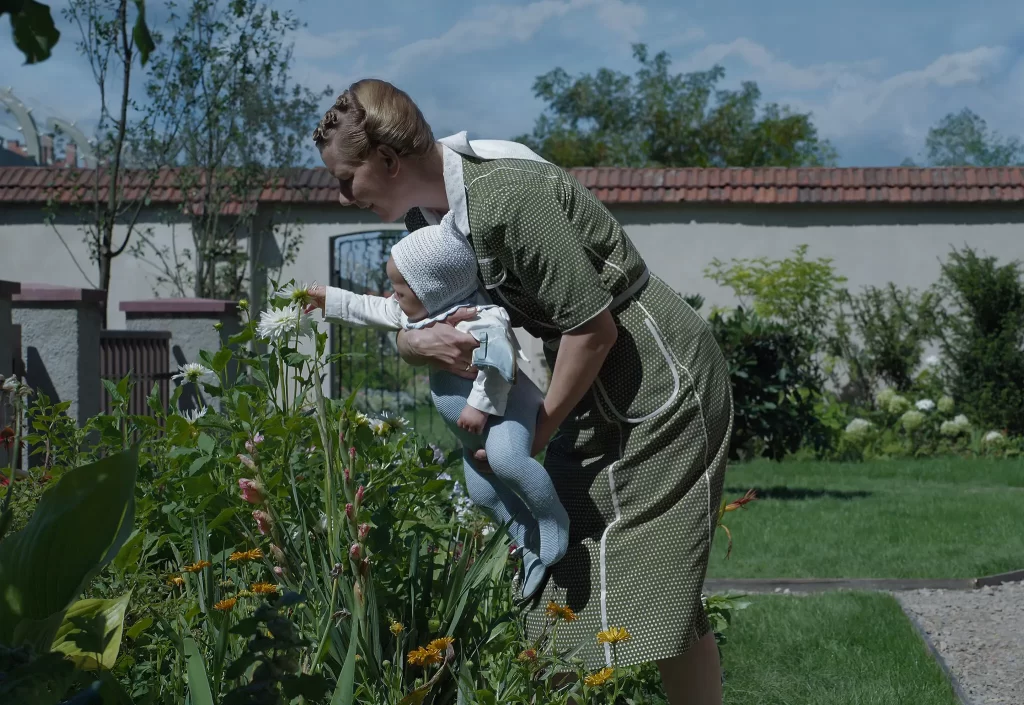
3. “Fallen Leaves”
Legendary Finnish filmmaker Aki Kaurismäki gives us another life-affirming gem with “Fallen Leaves,” a story of two lonely souls finding purpose and happiness with each other in a cold, seemingly uncaring world. Deploying Kaurismäki’s signature brand of dry, deadpan humor (with one of the year’s best scripts) that never loses sight of the characters’ humanity and capacity for change, it’s a lovely film — endlessly rewatchable and chock full of small yet meaningful moments of compassion that shine through amid bleak circumstances both near and far. “Fallen Leaves” isn’t a happy watch per say, but a hopeful one, with magnetic performances and Kaurismäki’s brilliantly efficient direction urging us to not succumb to despair and to embrace those we hold dear.
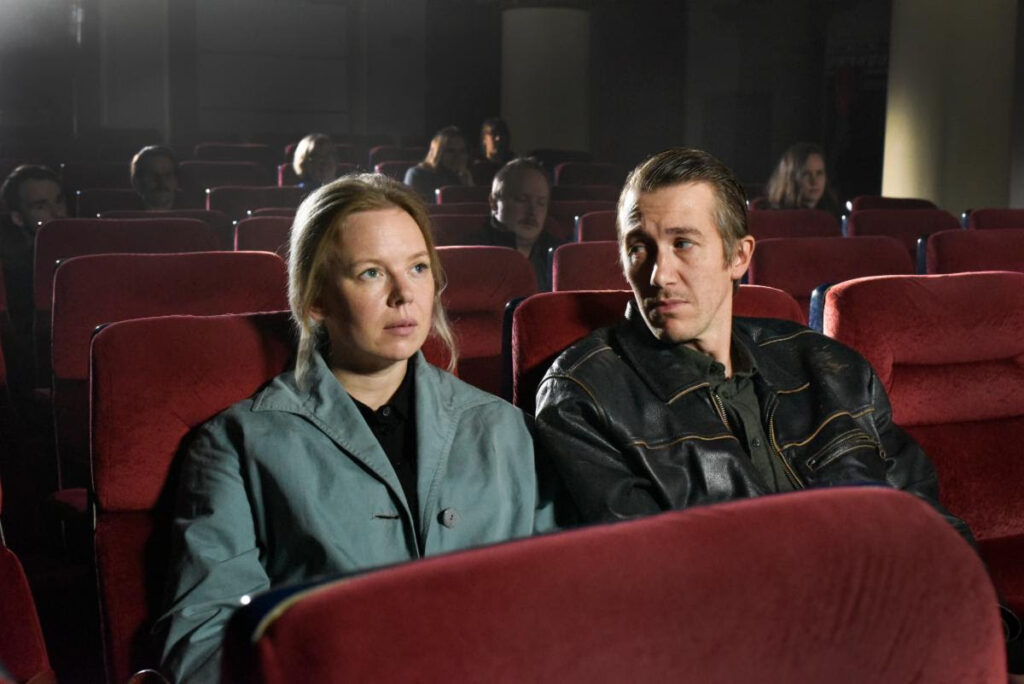
2. “The Killer”
Methodical, darkly comedic, achingly stylish, and yielding satisfying rewards for viewers willing to dig beneath the surface, “The Killer” is a mesmerizing masterwork from director David Fincher. This hyper-violent, slice-of-life portrait of an unnamed assassin (played with finely-calibrated precision by Michael Fassbender) experiencing an existential crisis might seem simple at first glance, but there’s far more going on here than meets the eye. “The Killer” is ultimately a deconstruction of toxic masculinity, a sardonic takedown of the gig economy, an indictment of our consumerist, always-online society, and a weirdly gratifying peek into an assassin’s day-to-day routines. It’s also streaked with irony, as viewers observe this “well-oiled killing machine” combusting from the inside-out; Andrew Kevin Walker’s screenplay delivers sharp jabs to our protagonist’s ego as his internal monologue tries to convince him everything is under control. Add to all this an incredible score by Trent Reznor and Atticus Ross, a whole bunch of songs by The Smiths, a scene-stealing cameo from Tilda Swinton, and an all-time great fight scene, there’s no doubt that Fincher’s latest ranks among the year’s best.
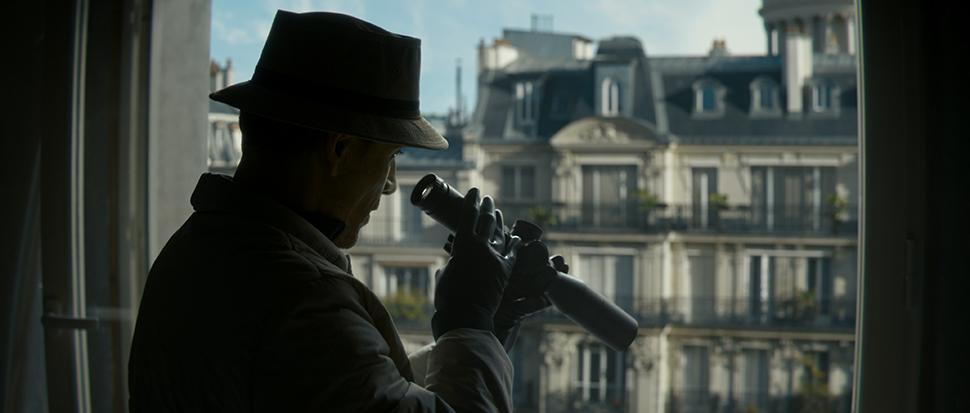
Director Chad Stahelski’s nearly-three-hour thrill ride “John Wick: Chapter 4” takes action filmmaking to new heights, presenting set piece after set piece of bone-crunching stunt work and dazzling cinematography. Keanu Reeves gives one of his best performances to date as the titular Baba Yaga, taking on “The High Table” in a last bid for freedom. Not even this year’s “Mission: Impossible – Dead Reckoning Part One” rivals the balletic carnage on display here, matched by a storyline with stakes, heart, and great supporting turns from Donnie Yen, Shamier Anderson, and Scott Adkins. The last hour, in particular, is absolutely immaculate — the most skillful action filmmaking since 2015’s “Mad Max: Fury Road.” What “Chapter 4” lacks in thought-provoking themes it more than makes up for with sheer fun factor. It’s a modern classic in the action genre that deserves more recognition, and as such, ranks at the top of my all-powerful, anyone-who-reads-this-should-watch-these-movies-immediately list.
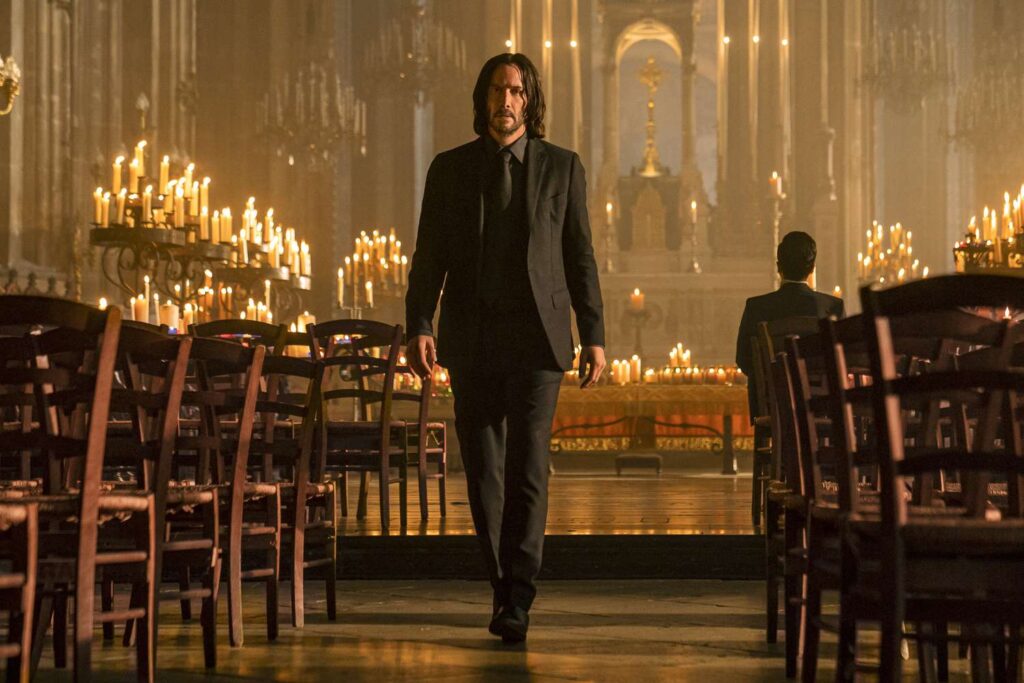
10 Honorable Mentions (I could keep going but needed to stop somewhere): “They Cloned Tyrone,” “Poor Things,” “Talk to Me,” “20,000 Species of Bees,” “Showing Up,” “BlackBerry,” “American Fiction” “The Holdovers,” “Robot Dreams,” “Mission: Impossible – Dead Reckoning Part One.”
Alex McPherson is an unabashed pop culture nerd and a member of the St. Louis Film Critics Association.

